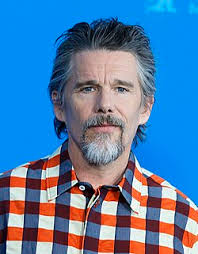
Introduction
Ethan Hawke, an acclaimed American actor, director, and author, has become a prominent figure in the film industry since his breakthrough role in the 1990s. With a diverse range of performances, he has not only etched his name in the hearts of audiences worldwide but has also influenced the craft of acting and filmmaking. As of 2023, Hawke continues to captivate viewers through his multifaceted talent, making it imperative to explore his journey and recent endeavors.
Career Beginnings and Rise to Fame
Ethan Hawke was born on November 6, 1970, in Austin, Texas. His acting career began at the young age of 15 in the 1985 film “Explorers.” However, it was his role as Todd Anderson in the 1989 film “Dead Poets Society,” alongside Robin Williams, that gained him widespread recognition. The film’s powerful themes of individuality and passion resonated with audiences, establishing Hawke as a leading actor.
Diverse Roles and Acclaimed Collaborations
Throughout the 1990s and early 2000s, Hawke starred in a variety of genres, showcasing his versatility. He received critical acclaim for his performances in films like “Before Sunrise” (1995), where he played Jesse, a character in a deep yet fleeting romance. This film became the first in a renowned trilogy, culminating in “Before Midnight” (2013), with which Hawke collaborated with director Richard Linklater. This trilogy is often praised for its realistic portrayal of relationships over time.
Moreover, Hawke’s work in “Training Day” (2001), alongside Denzel Washington, earned him an Academy Award nomination for Best Supporting Actor. His dedication to diverse roles continued with projects like “Boyhood” (2014), filmed over 12 years, where he played the role of a dedicated father, further emphasizing his commitment to character depth.
Recent Projects and Contributions
In recent years, Hawke has not only focused on acting but also pursued directing and writing. His latest film, “The Black Phone” (2022), a horror-thriller that received positive reviews for its unique narrative and Hawke’s chilling performance as the antagonist, has solidified his reputation in diverse genres.
Additionally, Hawke has authored multiple books on film and theater, contributing to discussions about the art of performance and storytelling. His documentary, “Seymour: An Introduction” (2014), showcases his passion for music and mentorship, providing a deeper look into his creative philosophy.
Conclusion
Ethan Hawke’s enduring legacy in cinema is characterized by his versatility, depth, and commitment to storytelling. As he continues to explore new artistic territories and engage audiences with compelling narratives, his influence on the film industry remains significant. For aspiring actors and filmmakers, Hawke’s career serves as a testament to the power of authenticity, creativity, and perseverance in the ever-evolving landscape of cinema.



